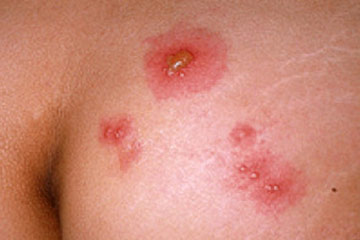Clinical highlights for malaria
- Overdose of antimalarial drugs, particularly chloroquine, can be fatal. Medication should be stored in childproof containers out of the reach of infants and children.
- Chemoprophylaxis can be started earlier if there are particular concerns about tolerating one of the medications. For example, mefloquine can be started 3–4 weeks in advance to allow potential adverse events to occur before travel. If unacceptable side effects develop, there would be time to change the medication before the traveler’s departure.
- The drugs used for antimalarial chemoprophylaxis are generally well tolerated. However, side effects can occur. Minor side effects usually do not require stopping the drug. Travelers who have serious side effects should see a clinician who can determine if their symptoms are related to the medicine and make a medication change.
- In comparison with drugs with short half-lives, which are taken daily, drugs with longer half-lives, which are taken weekly, offer the advantage of a wider margin of error if the traveler is late with a dose. For example, if a traveler is 1–2 days late with a weekly drug, prophylactic blood levels can remain adequate; if the traveler is 1–2 days late with a daily drug, protective blood levels are less likely to be maintained.
- In those who are G6PD deficient, primaquine can cause hemolysis, which can be fatal. Be sure to document a normal G6PD level before prescribing primaquine.
- Travelers should be informed that malaria could be fatal if treatment is delayed. Medical help should be sought promptly if malaria is suspected, and a blood sample should be taken and examined for malaria parasites on one or more occasions.
- Travelers should also be informed that malaria could be fatal even when treated, which is why it is always preferable to prevent malaria cases rather than rely on treating infections after they occur.
- Malaria smear results or a rapid diagnostic test must be available immediately (within a few hours). Sending specimens to offsite laboratories where results are not available for extended periods of time (days) is not acceptable. If a patient has an illness suggestive of severe malaria and a compatible travel history in an area where malaria transmission occurs, it is advisable to start treatment as soon as possible, even before the diagnosis is established. CDC recommendations for malaria treatment can be found at www.cdc.gov/malaria/diagnosis_treatment/index.html.
Anuncios






